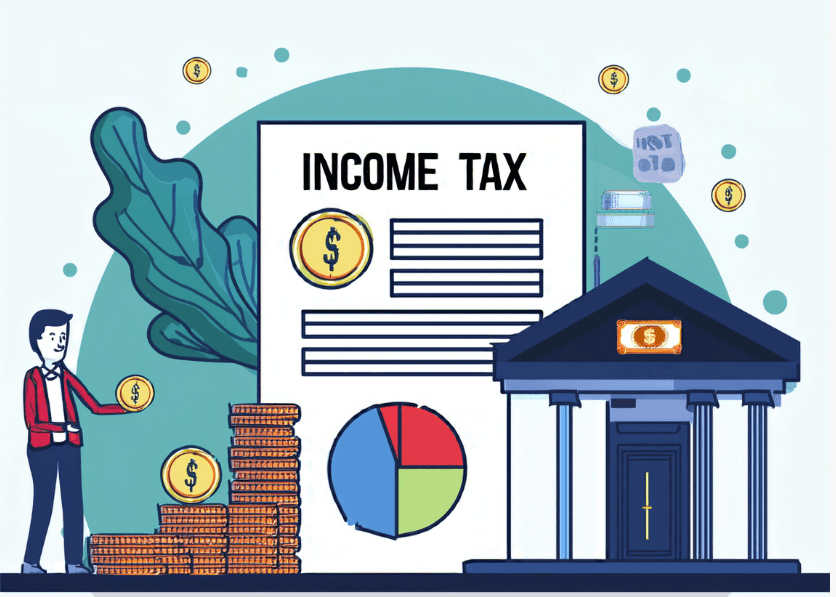
Cryptocurrencies have gone mainstream in India. From retail investors to institutional players, the crypto space is buzzing with activity. Yet, while crypto trading is legal, it comes with a well-defined tax burden. Understanding how taxation works for crypto assets is essential to avoid penalties and remain financially smart.
This detailed guide on crypto taxation in India 2025 explains everything you need to know about income tax, TDS, reporting requirements, penalties, and compliance strategies.
Is Crypto Legal in India in 2025?
Yes, trading cryptocurrencies is legal in India. However, they are not legal tender. This means you cannot use Bitcoin, Ethereum, or other digital assets to pay for goods and services officially.
The Supreme Court lifted the RBI ban in March 2020, restoring access to crypto markets. Since then, the government has introduced a tax framework but no formal legislation governing crypto usage or investor protection.
While legal, the government keeps a close watch on crypto transactions through the Financial Intelligence Unit (FIU) and mandates Know Your Customer (KYC) procedures on exchanges.
✅ Verdict: Crypto is legal, but tightly regulated through taxation and surveillance mechanisms.
Crypto Taxation in India 2025: What Rules Apply?
India’s crypto tax structure came into effect on 1 April 2022 under the Finance Act, 2022. In 2025, this regime continues with the following pillars:
🔹 1. Flat 30% Tax on Profits (Section 115BBH)
Any income from transferring virtual digital assets (VDAs) attracts a flat 30% tax.
Key Points:
- Only cost of acquisition can be deducted.
- No deductions allowed for transaction fees, gas charges, or mining costs.
- Crypto losses cannot offset other income (salary, FD interest, equity profits).
- You cannot carry forward losses to the next financial year.
Example:
| Description | Value |
|---|---|
| Buy price | ₹1,00,000 |
| Sale price | ₹1,40,000 |
| Profit | ₹40,000 |
| Tax @ 30% | ₹12,000 |
📌 You owe ₹12,000 even if the rest of your income is within the tax-free limit.
🔹 2. 1% TDS on Crypto Sales (Section 194S)
Every time you sell a crypto asset, the exchange deducts 1% Tax Deducted at Source (TDS).
Applicability:
- TDS applies if your total crypto trades exceed ₹10,000 in a financial year (₹50,000 for salaried employees).
- TDS is applicable even during a loss-making transaction.
- It must be deducted and deposited by the exchange or buyer.
Reporting:
- Appears in Form 26AS under TDS details.
- Can be claimed while filing your ITR.
🔹 3. ITR Filing & Schedule VDA
You must report your crypto income in the correct Income Tax Return (ITR) form:
| If you are… | Use this form |
|---|---|
| Salaried investor | ITR-2 |
| Trading as a business | ITR-3 |
| Holding crypto for gifts | ITR-1 (if not sold) |
Schedule VDA:
This section was added to ITR forms in 2022. You need to disclose:
- Name of asset
- Type of asset (coin, NFT, etc.)
- Date of acquisition and transfer
- Sale value and acquisition cost
- Gains or losses
Other Taxable Crypto Activities
Cryptocurrency isn’t just about buying and selling. Many users earn from airdrops, staking, mining, and NFT trades. Here’s how each of these activities is taxed:
Airdrops
- Considered gifts or income depending on the source.
- Taxable under “Income from Other Sources” at applicable slab rate.
- Gains from later sale attract 30% crypto tax.
Staking Rewards
- Treated as regular income.
- Taxed according to income tax slabs.
- If sold later, profit is taxed at 30%.
Mining
- Income from mined crypto is taxed at slab rate as business income.
- Later sale attracts 30% tax on profits.
NFTs (Non-Fungible Tokens)
- NFTs are now classified as Virtual Digital Assets.
- Profits from NFT trading are taxed at 30%.
- TDS rules also apply.
Case Studies: Real-World Examples
Let’s explore practical scenarios to make crypto taxation easier to understand.
Case 1: Investor Selling with Profit
Ravi buys Bitcoin worth ₹2 lakh and sells it for ₹3 lakh.
- Gain: ₹1 lakh
- Tax @ 30%: ₹30,000
- TDS deducted on sale: ₹3,000 (1%)
- Net payable tax: ₹27,000 after adjusting TDS
Case 2: Loss-Making Sale
Anjali buys Ethereum at ₹1 lakh but sells it for ₹80,000.
- Loss: ₹20,000
- No tax benefit
- Still pays ₹800 TDS
- Cannot carry forward the loss
Case 3: Staking Income + Capital Gains
Manish earns ₹25,000 from staking Solana and sells it later for ₹60,000 (originally received for free).
- ₹25,000 taxed at his slab rate
- ₹60,000 taxed at 30% (as capital gain)
What Happens If You Don’t Comply?
Ignoring crypto tax compliance in India can lead to serious trouble. The Income Tax Department monitors exchanges and wallet addresses via AI tools and blockchain analytics.
Penalties Under the Income Tax Act:
| Offense | Penalty Provision | Description |
|---|---|---|
| Underreporting crypto income | Section 270A | 200% of the tax due |
| Non-filing of ITR | Section 234F | ₹5,000 – ₹10,000 fine |
| Late payment | Sections 234A/B/C | 1% interest per month |
| Willful concealment | Section 276C | Prosecution with up to 7 years imprisonment |
🛑 Crypto tax evasion is a punishable offense, just like other forms of tax fraud.
How to Stay Compliant: Best Practices
Here’s your crypto tax compliance checklist for 2025:
Use FIU-Registered Exchanges
Platforms like CoinDCX, CoinSwitch, WazirX, and Kuber are registered with the Financial Intelligence Unit. They follow KYC, TDS, and tax guidelines.
Maintain Detailed Transaction Logs
Track every buy/sell/swap transaction with:
- Token name
- Quantity
- Purchase & sale prices
- Exchange wallet used
- INR value at time of transaction
Use Crypto Tax Tools
Here are three reliable crypto tax software tools:
| Tool Name | Features |
|---|---|
| KoinX | India-specific tax reporting, supports CAs |
| Binocs | Portfolio sync + auto-calculations |
| ClearTax Crypto | ITR filing + portfolio overview |
Consult a Tax Professional
A Chartered Accountant (CA) can help you:
- Calculate taxes accurately
- Choose the right ITR form
- Optimize returns
- Avoid errors in Schedule VDA
Future of Crypto Taxation in India
India’s regulatory landscape remains in development. The Supreme Court in 2024 urged the government to bring in a formal crypto law. The Ministry of Finance has hinted at a comprehensive Crypto Regulation Bill, which may include:
- Guidelines on stablecoins
- Protection from rug pulls and scams
- Licensing for crypto exchanges
- Cross-border tax mechanisms
Until then, the Finance Act, 2022 and its 2023–2025 updates remain the final authority on crypto taxation in India.
Frequently Asked Questions (FAQs)
Final Thoughts
The Indian government treats cryptocurrency as a taxable asset—not a currency. If you trade, earn, stake, or mine crypto, you must comply with the tax rules under Sections 115BBH and 194S.
Though taxation may seem strict, clarity allows traders and investors to plan better. By staying informed and proactive, you not only avoid penalties but also build a trustworthy, legal crypto portfolio.

